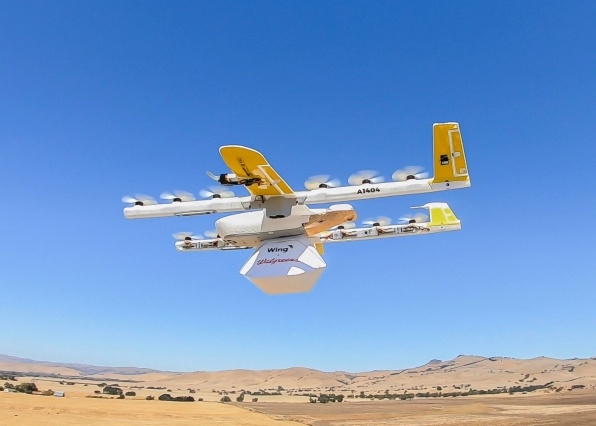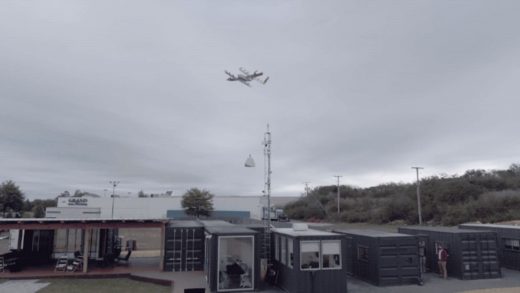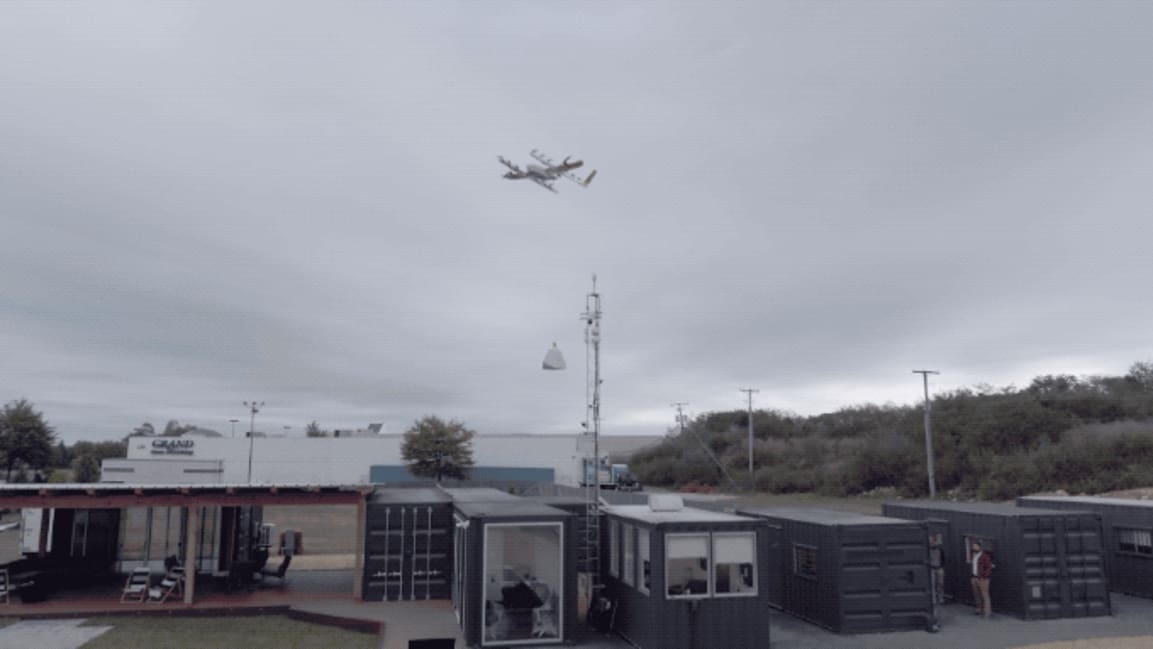Drones from CVS and Walgreens are finally here—and they’re bringing Band-Aids
Pharmacies will soon be flying drugs directly to you. On Monday, UPS announced that it’s partnering with CVS to launch drone delivery for the pharmacy, where drones will carry both prescriptions and other convenience products to people’s homes. UPS is currently working with the Federal Aviation Administration on possible locations for the program.
The news follows an announcement last week that Walgreens would begin offering drone deliveries in Christiansburg, Virginia, through FedEx and Alphabet’s Project Wing drone airline. The three companies plan to ferry the most rudimentary pharmacy goods such as Band-Aids and Cheez-Its to a population of just over 22,000. For the time being, Walgreens will only deliver over-the-counter medications as well as convenience items like tampons, chips, and ibuprofen. The pharmacy will not be sending prescription drugs through the air—yet.

“We’re exploring the possibility,” says Vish Sankaran, Walgreens’ Chief Innovation Officer. For pharmacies, which deal in pills and smaller merchandise, drone delivery is a novel way to stay competitive with e-commerce companies. Sankaran says Walgreens is particularly interested in catering to people who are sometimes housebound, such as parents or senior citizens. Initially, Walgreens will be offering a limited number of quick packs, including kits for pain relief, first aid, kids’ snacks, and baby care.
UPS launched its first drone pilot with the drone company Matternet at WakeMed hospital in Raleigh, North Carolina, in March. Now it’s bringing that infrastructure to Kaiser Permanente and the University of Utah hospital campus in Salt Lake City. UPS will also be working with pharmaceutical company AmerisourceBergen on drone delivery to bring drugs to doctors and independent pharmacies. The postal company is currently working with the Federal Aviation Administration to determine where it can let its drones fly.
Wing, originally one of Alphabet’s moon-shoot projects, garnered FAA certification to launch a drone airline in April. The certification must be renewed in two years, according to Reuters. Earlier this month, UPS’s Flight Forward drone airline got the thumbs-up from the FAA, giving it airspace access. Notably, Amazon has yet to be granted approval, though it has submitted Prime Air Drone delivery for consideration.
The promise of drone delivery has been hovering in the air since the early aughts. In 2011, startups like Matternet and Zipline began to give shape to the dream of drone drops. Then in 2013, Amazon announced Prime Air, a drone delivery service that could one day bring packages right to your door, further whetting consumer appetite for quadcopter delivery. But the FAA has been slow to get on board. Commercial drone flight is only allowed on a case-by-case basis, and the administration has been conservative about giving approval to interested companies. For instance, the FAA requires drone pilots to be within sight of the aircraft when it’s in flight. That has led several companies, including Amazon and Wing, to test their technology overseas.
The FAA has been cautious for several reasons. Drones can be hacked to ferry explosives or capture video surveillance. At the end of 2018, a drone famously brought flights at Gatwick International airport in London to a halt for a day and a half. Similar subsequent incidents have some speculating that such disruptions may be commonplace in the future.
Still, in acknowledgement of the molasses speed at which lawmaking moves, in 2018 the FAA announced its pilot program to study ways of integrating drone flight operations into U.S. airways. Wing, Matternet, and Zipline were among the participants via municipal and academic partnerships.
It is through that program that drone delivery for the masses is beginning to take form. The timing could hardly be better. Drones are becoming big business as companies are exploring how drones can make up for poor roadways and crumbling infrastructure in different countries. Zipline, which now delivers blood to transfusion centers in Rwanda and vaccines to clinics in Ghana, is currently valued at $1.2 billion. Wing has already launched a commercial food delivery operation in Canberra, Australia. In 2017, Matternet got the Swiss government to sign off on medical deliveries to hospitals in country.
With Walgreens already flying purchases to customers in Virginia and CVS soon to start, it seems the U.S. is finally getting on board.
Fast Company , Read Full Story
(26)



